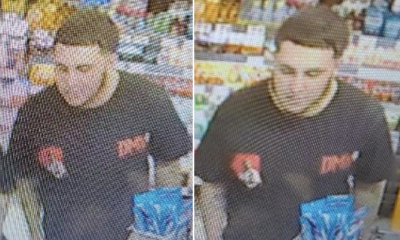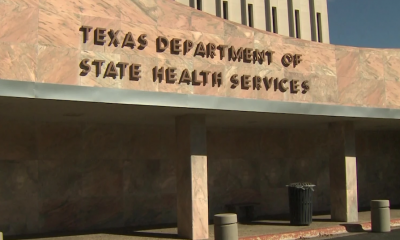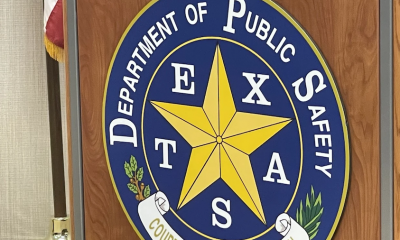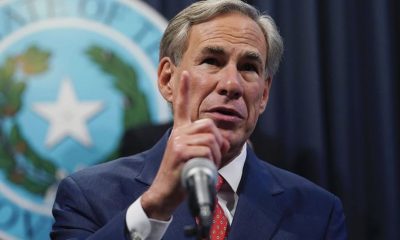Texas
How one North Texas city in Dallas County came together to lead COVID-19 vaccine sign-ups

TX – The parking lot at the DeSoto Senior Center was unusually packed.
Shuttered for nearly a year, since the coronavirus pandemic hit North Texas, the center had been hollow. But on this February day, dozens of mask-wearing Black seniors moved in and out of the center for a very special occasion: The center was co-hosting a COVID-19 vaccine registration event with Dallas County’s health department.
“It’s almost like the center is open,” Elma “Lady” Goodwin, a one-time regular at the center, said. She was broadcasting the scene to her Facebook friends in a video. “This is what your center should be doing. At this center, there are African Americans. This is the population — as you well know — not being vaccinated. We need this effort here.”
In the push to get more people — especially Blacks and Latinos — registered for the COVID-19 vaccine in Dallas County, this southern suburb stands out.
The city, about 16 miles south of downtown Dallas, is unlike most other North Texas suburbs. Nor is it similar to other parts of Dallas County with a high number of residents registered for the vaccine — and ultimately inoculated.
What makes DeSoto — population 53,030 — so unique on both counts is that it is predominantly Black and middle class.
By mid-February, DeSoto, in the 75115 ZIP code, was among Dallas County’s top 10 areas for both registrations and vaccinations. At No. 8, the suburb had more than 9,000 residents on the county’s waitlist. And at No. 10, nearly 6,000 residents had already been vaccinated, according to county data provided by the Parkland Center for Clinical Innovation, a nonprofit that analyzes health data for the county and the Parkland Health & Hospital System.
“If I had 26 DeSotos in Dallas County, we wouldn’t have any problems,” said Dallas County Judge Clay Jenkins during a recent digital town hall discussing the vaccine.
Across the state and country, governments and health care providers alike have had trouble getting Blacks and Latinos vaccinated.
In Dallas, the registration process was, at the start, entirely online and out of reach for many older residents, especially those in poorer communities where internet and technology access is still limited. Coupled with other systemic barriers Blacks and Latinos face to health care, the result has been yet another equity gap.
Data in Dallas County shows that most people who have signed up and received the vaccine are white and live in affluent neighborhoods north of Interstate 30. As of Friday, just 14% of all 316,000 Dallas County residents who have received at least one shot of the two-dose vaccines are Black, according to state data, which is incomplete due to a bloc of residents who don’t share their race and ethnicity. That’s an eight-point gap: Blacks make up 22% of the county’s overall population.
‘Bridge for the community’
It is no accident how DeSoto cracked into the exclusive club of mostly white and northern communities that are both highly represented on the county’s waitlist and among those with the most vaccinated residents. DeSoto city employees took it upon themselves to start registering people for the vaccine.
Prior to the pandemic, the DeSoto Senior Center was a social hub. More than 100 seniors would stop by the center daily for free coffee, a meal and conversation.
Dianca McGhee, the senior center’s manager, desperately wants to recreate that feeling as soon as possible.
The only way to do that, she realized, is to get her people vaccinated.
As soon as she learned about the county’s registration list, she published details on social media and in the center’s weekly printed newsletter, which is delivered by workers along with hot meals to homebound seniors. And from the beginning, she offered her staff to help any senior who didn’t have the technology skills or internet access to register.
“A lot of people don’t have grandkids to help,” she said, “so I just made us available to them.”
On any given day, four or five senior center employees stand ready to register anyone over the phone — a makeshift call center.
To boost their efforts, McGhee secured help from the Dallas County Health and Human Services Department, which hosted the daylong sign-up event at the senior center.
“It was like a family reunion,” she said, remembering the Feb. 1 event that temporarily resurrected the center.
It’s not merely the senior center that has taken up the mantle of registering residents. Up the street at the library, all 15 librarians have also been trained to enroll residents in person or over the phone. Besides helping residents who wander in or call on a daily basis, the library has also hosted special registration events with Dallas County staff.
For Cameron Kainerstorfer, the library’s public service supervisor, helping residents — including those who have never used a computer — sign up online is an extension of why libraries were built.
“We want to connect them to the information they need — that’s a large role we play,” she said. “We’re a bridge to the community, and we’re a bridge for the community.”










